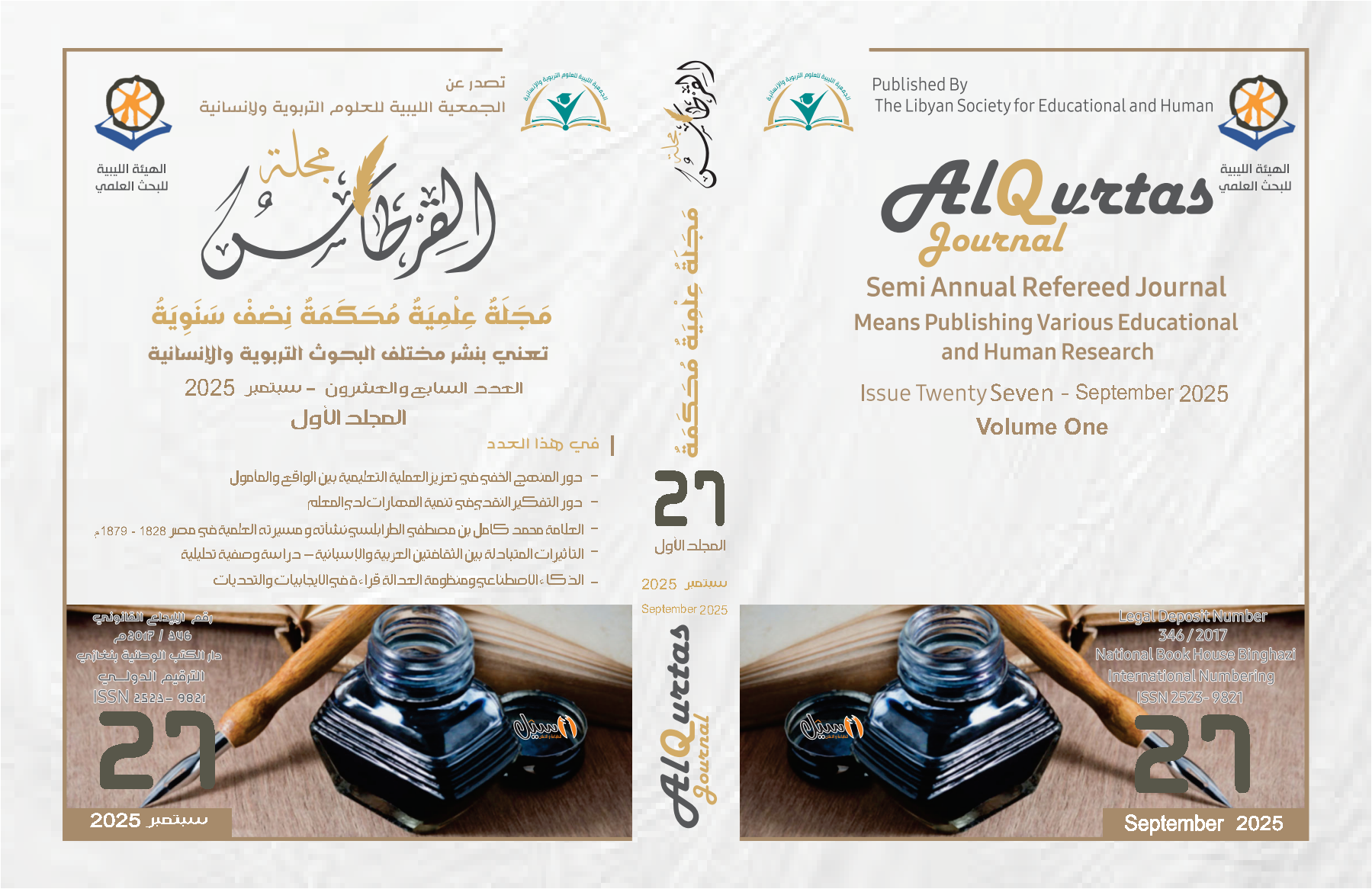The Impact of Adequate Professional Care and Independence on Improving Audit Quality in Libya."A Field Study from the Perspectives of Academics and External Auditors"
Main Article Content
Abstract
The study aims to directly identify adequate professional care as a pivotal factor, as it is an intervening variable between continuing education, professional training, and experience on the one hand, and audit quality and independence on the other hand, in the Libyan environment, where the country suffers from a lack of institutional support and adequate legislation, which imposes unique challenges to independence and audit quality. This was achieved by taking the opinions of (50) faculty members at the University of Benghazi, and the opinions of (60) external auditors practicing in audit offices licensed by the Syndicate of Accountants and Auditors in Benghazi, to achieve audit quality in light of these challenges. The study relied on the descriptive analytical approach, and used an electronically designed questionnaire that was distributed to a random sample of study participants. The data was analyzed using the statistical program SPSSV 27. The study concluded that all independent variables of the study related to improving the quality of external auditing were strongly approved, and had a positive impact on improving the effectiveness of external auditing, reflecting a deep awareness of the importance of these factors. The study concluded that The importance of external auditor independence in achieving a neutral and highquality audit is highlighted. This calls for establishing clear mechanisms to ensure impartiality, such as pre-determining audit fees and using technology to enhance independence. The study concluded that the most favorable opinions were regarding education, continuous training, and experience, which will impact the efficiency and effectiveness of auditors, leading to increased awareness and improved skills in dealing with external influences and pressures, which in turn will enhance auditor independence. The study recommended that audit firms should focus on increasing and developing the professional and academic competence of their members. It also recommended selecting auditors who possess sufficient professional care, given the significant impact the current study has demonstrated in improving audit quality. Libyan universities should also hold seminars and workshops, and review the legislation and laws regulating the profession to address deficiencies and shortcomings. The study also emphasized the need to grant the Syndicate the authority to adhere to its directives and instructions.
Downloads
Article Details

This work is licensed under a Creative Commons Attribution-NonCommercial 4.0 International License.

